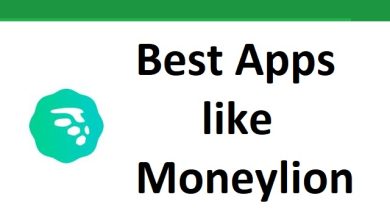The Key Elements of a Successful Event Proposal: What to Include and Why

Event proposals are a great way to help you get funding for an event, especially if you are just starting out. But they can also be a useful tool to help keep your event’s momentum going and for sharing ideas with sponsors and other stakeholders. If you’re wondering how to write an effective event proposal template or looking for tips on what elements should go into one, look no further! We’ll walk through what goes into a successful proposal template, from start to finish.
Introduction
The introduction is a crucial part of your event proposal template, but it should be brief. You don’t want to waste time with unnecessary details.
Include the following:
- Why you are writing the proposal (for example, you want to hold an event that will help raise money for a charity)
- Who you are writing the proposal for (an organizer at an organization)
- What you want to achieve with the event (for example, raising $10,000 in donations)
- How long you think your event will last
Define the Event Goals
The next step is to define the event goals. This is where you decide what you want to achieve by hosting the event, and how you will measure its success. Your goals should be clear and measurable, realistic, achievable within a reasonable timeframe (i.e., six months), and consistent with your organization’s mission statement.
If an event requires attendees from outside of your organization or industry–which most do–you’ll need to consider how those people can benefit from being there (or at least feel like they got their money’s worth). This might mean providing value-added programming that relates directly back to their jobs (such as seminars) or creating networking opportunities that help them grow professionally by connecting them with peers or senior executives in related fields who might otherwise never meet face-to-face outside of industry conferences like CES or NAB Show week(s).
Assess Your Audience’s Needs and Expectations
Before you start writing, it’s important to assess your audience’s needs and expectations. If they’re not clear, ask them! It can be as simple as “What is the purpose of this event?” or “Who are we trying to reach?”
You may also want to consider asking:
- What are their goals?
- How do they want attendees to feel after attending?
- What does success look like for this event (e.g., increased sales leads)?
Determine What Type of Event to Host
The next step toward creating an effective event proposal template is determining what event you want to host. This will depend on your organization’s goals, but it’s important to consider what kind of attendees would benefit from attending your proposed event and how this audience can help achieve those goals.
For example, if the goal of your nonprofit is to raise awareness about the issue you’re working on (such as ending hunger), then hosting a conference with speakers with expertise in the field may be best suited for achieving this goal. For example, if your nonprofit works with children affected by trauma and abuse, inviting experts from various fields–including mental health professionals or child psychologists–could help raise awareness about these issues among people who don’t work directly with these populations every day.
On the other hand, if one of those same nonprofits wanted instead raise money without increasing membership too much (because they already have plenty), they might choose instead host a gala dinner where people pay $100 per plate rather than attend free workshops throughout the day that don’t allow them meet new friends or make connections within their industry (which could lead potential donors).
Cite the Need for Event Support and Sponsorship
You can begin your pitch with a statement highlighting the need for event support and sponsorship. You might say something like, “This event will be a great opportunity to bring together local businesses and community leaders to raise awareness about an important cause.” Or: “The funds raised through this event will provide resources for those who need them most.”
If you’re working with an existing organization, consider mentioning their goals within the context of your proposal. For example: “Our organization works hard each year on behalf of our beneficiaries by providing financial assistance, education programs and other services.”
Evaluate the Budget for the Event and Outline Financial Needs, Logistical Costs and Revenue Opportunities
The next step is to evaluate the budget for the event and outline financial needs, logistical costs and revenue opportunities. This can be done either by yourself or with the help of your team.
To determine how much money you will need to raise, look at what has been spent in previous years on similar events (if applicable) and any other relevant factors such as venue size or guest list size. Once you have a rough estimate of how much money will be required, outline how much has already been secured through sponsorships or donations so far; this gives readers an idea of just how far along they are in their fundraising efforts before they even begin writing their proposal!
After determining how much money will go toward covering expenses like catering and decorations, calculate exactly how much profit margin remains after paying all suppliers/vendors for their services at fair market value rates set by industry standards–this way, there won’t be any surprises later down the road once everything starts getting underway!
An Event Proposal is Essentially a Road Map for an Event
A successful event proposal template requires you to consider your event’s steps. This includes everything from venue selection and logistics to budgeting and sponsorship proposals. The most important thing is that you have a plan! A good way to start is by making a list of all the things that need to happen for your event to take place–this will help keep everything straight as it gets more complicated later on.
Here are some examples of things that should be included in any event proposal:
- An outline of how much money will be needed for each aspect of putting on an event (venue rental fees, catering costs)
- A list of potential sponsors who could donate goods or services at no cost (or reduce their prices) in exchange for exposure at your conference/gathering/etcetera
- Information about vendors who could provide products or services related with minimal effort on their part
Conclusion
Event proposals are an essential part of the planning process, and they can be a great tool for helping you get funding for your event. We hope that our tips have given you a better idea of how to write a proposal that will get people excited about attending or supporting your event!




